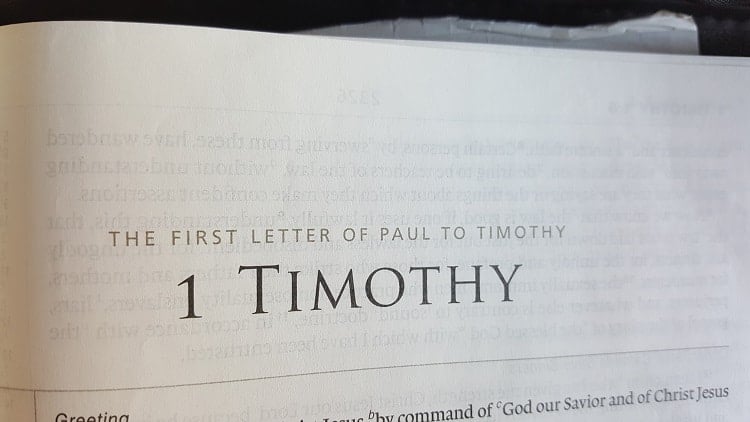⏱️ Estimated Reading Time: 4 min read
1 Timothy 1:17, “To the King of the ages, immortal, invisible, the only God, be honor and glory forever and ever. Amen.”
I love declarations in Scripture that speak to the attributes of the Lord. One such passage is 1 Timothy 1:17. In this verse, the Apostle Paul provides us a summation if you will of who it is we pledge our allegiance and what our response should be to this Elohim of Elohim.
The first description given by Paul of the Lord is He is the King of the ages. The word King is the Greek noun basileus, meaning “leader of the people, prince, commander, lord of the land, king.” What is arguably even more interesting about this term is its root word, namely basis. Basis speaks of a leader who walks or steps, revealing that the Lord is not some distant deity. Conversely, He loves and cares for His people. He sent His Son to be the Emmanuel, God with us and He sent the Holy Spirit to lead and guide us in all righteousness.
Furthermore, the Lord is no fly by night ruler whose power can be usurped. He is King of the ages, ruler of all things from eternity past to eternity present. John MacArthur saliently notes that eternal “refers to the two ages in Jewish thought, the present age, and the age to come.”[1] This encompasses the fullness of time.
Next, Paul describes the Lord as immortal, a term that relates to the idea of eternality, but that also explains the Lord cannot and will not ever experience cessation of existence. As the epitome of perfection and holiness, He is not subject to the ravages of sin such as death and decay. Revelation 1:8 describes Him as who is, and who was, and who is to come, the Almighty.” His rule will never know an end.
The Lord is also described here as invisible. In John 4:24 Jesus stated, “God is a spirit, and his worshipers must worship in the Spirit and in truth.” Stephen Charnock explaining this particular attribute of the Lord when he states, “he hath nothing corporeal, no mixture of matter, not a visible substance, a bodily form…God is therefore a Spirit incapable of being seen, and infinitely incapable of being understood.”[2] Unlike the pagan elohim, the Lord is not made of wood or stone, He is the Elohim of Elohim.
Moreover, the Lord is the only Elohim. This hearkens back to the Shema found in Deuteronomy 6:4. All faithful Jews would have recognized what Paul was saying when he described the Lord as the only Elohim, given the Shema was a prayer that was spoken twice daily.
Paul concludes 1 Timothy 1:17 with the only viable response to the eternal, immortal, invisible, Elohim of Elohim. As His people, we are to give him honor and glory, forever and ever. Sometimes we forget what giving honor and glory to Lord is all about. It is more than mere lip service or a “thanks to the big Guy upstairs” routine. Honor and glory speak to something far more. Thomas Lea avers, “The honor Paul gave to God involves esteem and reverence due to God because of his personal qualities of excellence. The term glory is an acknowledgment of God’s majesty and power.”[3]
This honor and glory are to be given to the Lord for all eternity. In fact, given we will be praising Him for all eternity, it might behoove us to get into practice today. This doxology should be more than just something we say as part of a ritualistic prayer or something we skim over in Scripture. Giving the Lord honor and glory should be the hallmark of our lives with all we do and say bringing praise to the Elohim of Elohim. Nothing less should be acceptable.
References:
[1] John MacArthur, 1 Timothy: MacArthur New Testament Commentary (Chicago: Moody Publishers, 1995), 33.
[2] Stephen Charnock, The Existence and Attributes of God (Grand Rapids: Baker Books, 2005), 178, 184.
[3] Thomas Lea, The New American Commentary: I-II Timothy, Titus (Nashville: B&H Publishing Group, 1992), 77.




